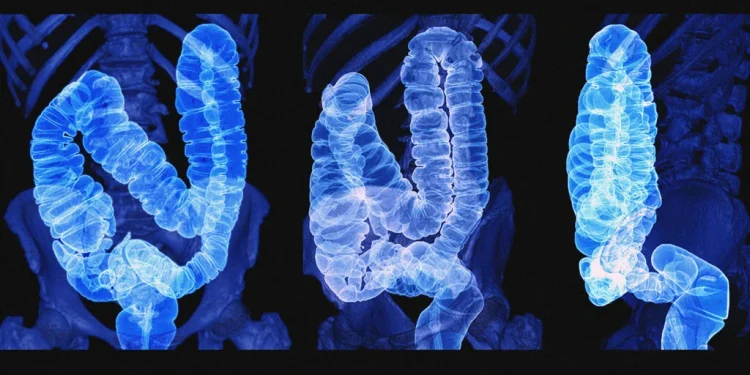Colon cancer, also known as colorectal cancer, is one of the most common types of cancer globally and in Singapore. It involves the development of cancerous cells in the colon or rectum, parts of the digestive system. Early detection and treatment are crucial for improving outcomes, making it vital to understand the etiology, prevalence, risk factors, signs and symptoms, diagnostic procedures, and treatment options associated with this disease.
Colon cancer typically develops from precancerous polyps, which are abnormal growths in the lining of the colon or rectum. Over time, these polyps can become cancerous.
Several factors contribute to the development of colon cancer, including:
- Genetic mutations: Inherited genetic mutations, such as those found in familial adenomatous polyposis (FAP) or Lynch syndrome, significantly increase the risk.
- Lifestyle factors: Diets high in red and processed meats, lack of physical activity, obesity, smoking, and heavy alcohol consumption can elevate the risk.
- Inflammatory bowel disease: Conditions like Crohn’s disease and ulcerative colitis can increase the risk due to chronic inflammation of the colon.
In Singapore, colon cancer is one of the most prevalent cancers. According to the Singapore Cancer Registry, colorectal cancer is the most common cancer among men and the second most common among women. It accounts for about 16.3% of all cancer cases diagnosed in Singapore. This high prevalence underscores the importance of awareness and regular screening.
Who Is At Risk?
Several factors can increase the risk of developing colon cancer:
- Age: Individuals over 50 are at higher risk.
- Family history: Having a family history of colon cancer or polyps increases the risk.
- Personal history: Previous colorectal cancer or adenomatous polyps can elevate the risk of recurrence.
- Inherited conditions: Genetic syndromes like Lynch syndrome and FAP.
- Lifestyle factors: Poor diet, lack of exercise, smoking, and alcohol consumption.
- Chronic conditions: Type 2 diabetes and inflammatory bowel disease.
Signs and Symptoms
Colon cancer can present with various signs and symptoms, which may include:
- Changes in bowel habits: Persistent diarrhea, constipation, or a change in stool consistency.
- Blood in stool: Bright red or dark blood in the stool.
- Abdominal discomfort: Cramping, gas, or pain.
- Weakness and fatigue: Due to anemia caused by chronic blood loss.
- Unexplained weight loss: Sudden, unexplained weight loss can be a sign.
Diagnostic Procedures
Diagnosing colon cancer involves several steps and tests:
- Screening tests: Regular screening for individuals over 50 or those at high risk. Common tests include fecal occult blood test (FOBT), fecal immunochemical test (FIT), and stool DNA tests.
- Colonoscopy: A procedure using a long, flexible tube with a camera to view the entire colon and rectum. Polyps can be removed during this procedure.
- Sigmoidoscopy: Similar to a colonoscopy but examines only the rectum and lower colon.
- Imaging tests: CT colonography (virtual colonoscopy) and traditional CT or MRI scans to detect cancer spread.
- Biopsy: Tissue samples taken during a colonoscopy to confirm the presence of cancerous cells.
Treatment Options
Treatment for colon cancer depends on the stage of the disease and other individual factors:
- Surgery: The primary treatment for early-stage colon cancer, involving the removal of cancerous sections of the colon.
- Radiation therapy: Often used before surgery to shrink tumors or after surgery to destroy remaining cancer cells, particularly in rectal cancer.
- Chemotherapy: Utilized to kill cancer cells, especially if the cancer has spread beyond the colon.
- Targeted therapy: Drugs that target specific molecules involved in cancer growth, such as monoclonal antibodies.
- Immunotherapy: Helps the body’s immune system recognize and attack cancer cells, effective in certain types of colon cancer.
- Lifestyle and supportive care: Diet, exercise, and psychological support to help manage symptoms and improve quality of life.
Colon cancer is a significant health concern in Singapore, with high prevalence rates among both men and women. Understanding the risk factors, signs and symptoms, and diagnostic and treatment options is crucial for early detection and effective management of the disease. Regular screening and a healthy lifestyle can significantly reduce the risk and improve outcomes for those diagnosed with colon cancer.








































